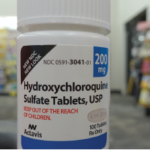At the 2021 ACR State-of-the-Art Clinical Symposium, Saira Sheikh, MD, associate professor of Medicine and director of the Rheumatology Lupus Clinic, University of North Carolina, Chapel Hill, provided an update on the past, present and future of the management of systemic lupus erythematosus (SLE). This year, hydroxychloroquine received a great deal of attention, given early…








